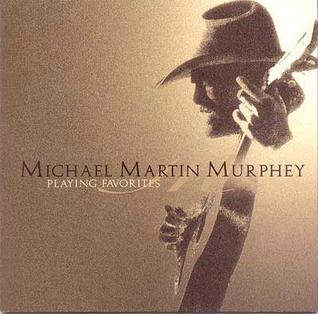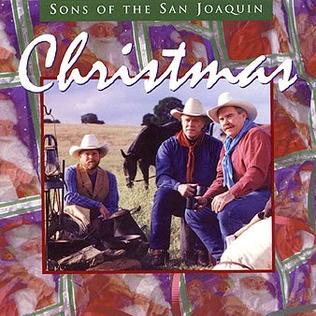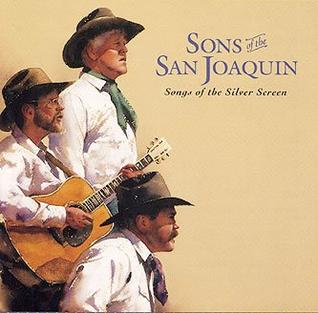
Unchained, also known as American II: Unchained, is the second album in Johnny Cash's American Recordings series. It was released on November 5, 1996, by American Recordings. Like all of Cash's albums for American Recordings, Unchained was produced by Rick Rubin. The album received a Grammy for Best Country Album and Cash was nominated for Best Male Country Vocal Performance for his version of "Rusty Cage".

The Mystery of Life is the 77th album by country singer Johnny Cash, released in 1991, and his last for Mercury Records. The songs featured are culled from both recent sessions and from leftovers from Cash's first Mercury session in 1986 for the album Johnny Cash is Coming to Town.

Johnny Cash Is Coming to Town is the 73rd album by American country singer Johnny Cash, released in 1987, and his first for Mercury Records. It was re-released in 2003, paired with Boom Chicka Boom on a single CD. "Sixteen Tons" was previously a hit for Tennessee Ernie Ford, "The Big Light" is an Elvis Costello song from his album King of America, released the previous year and "Let Him Roll" is from Guy Clark's debut, Old No. 1. The album reached #36 on the country charts, while the only released single, "The Night Hank Williams Came to Town", peaked at #43.

Like Red on a Rose is the fourteenth studio album by American country music artist Alan Jackson. It was released on September 26, 2006. The album produced two singles, the title track and "A Woman's Love", which respectively reached numbers 15 and 5 on the Hot Country Songs charts.

Monsters, Inc. Scream Factory Favorites is a studio recording released by the Western band Riders in the Sky on August 27, 2002 on a single CD. The album is produced by Joey Miskulin. It features covers of the songs from the Disney/Pixar film, Monsters, Inc., as well as original material. The album won the Grammy Award for Best Musical Album for Children at the Grammy Awards of 2003, making it the second such award for the band itself.

At My Window is an album released by Folk/country singer-songwriter Townes Van Zandt in 1987. This was Van Zandt's first studio album in the nine years that followed 1978's Flyin' Shoes, and his only studio album recorded in the 1980s.

Cowboy Christmas III is the twenty-fifth album by American singer-songwriter Michael Martin Murphey and his third album of Christmas music. The album features traditional music and poetry performed by Michael Martin Murphy and cowgirl poet, Sarah Rische. Also included is a new Michael Martin Murphey song "The Kill Pen". All the poems were recited by Michael Martin Murphey except "Are You Going Home for Christmas", which was recited by Sarah Rische.

Cowboy Classics: Playing Favorites II is the twenty-fourth album by American singer-songwriter Michael Martin Murphey. This is Murphey's followup to his successful 2001 compilation Playing Favorites and contains rerecorded versions of many of his cowboy songs. Murphey's attraction to the cowboy's way of life is an attempt to preserve his own cultural heritage, breathing new life into classics like "I Ride an Old Paint", "Red River Valley", and "Yellow Rose of Texas". Among the highlights of the album is a stately six-minute version of "Streets of Laredo", arranged for fiddle and piano. In the liner notes, Murphey includes a short note concerning each of the song's origins.

Playing Favorites is the twenty-third album by American singer-songwriter Michael Martin Murphey. Released August 21, 2001, the album features completely new recordings of eleven of the artist's country, cowboy, and popular crossover classics, as well as one new song. In his liner notes, Murphey writes that "songs are like children; they grow, evolve, change with time." The concept behind Playing Favorites was to document the growth and evolution of his best-loved tunes, using many new musicians and modern recording techniques not available when the original recordings were done.

Acoustic Christmas Carols – Cowboy Christmas II is the twenty-second album by American singer-songwriter Michael Martin Murphey and his second album of Christmas music. Recorded at St. James Episcopal Church in Taos, New Mexico, the church Murphey attended at the time, the album consists of carols from the nineteenth century or earlier played on acoustic instruments, among them "Silent Night" and "Joy to the World". Murphey's arrangements feature his own finger-picked guitar, accompanied by John McEuen on banjo or mandolin, or Paul Sadler on hammer dulcimer. Murphey's sons, Ryan and Brennan, play blues guitar licks on "Go Tell It on the Mountain", and his daughter, Laura, sings a duet with her father on "Silent Night". This is a "spare and reverent Christmas album, appropriate for a rustic celebration in a Western church."

Cowboy Songs Four is the twenty-first album by American singer-songwriter Michael Martin Murphey, his fourth album of cowboy songs, and his first album produced by his son, Ryan Murphey. The album features a guest performance by Lyle Lovett on "Farther Down the Line".

Sagebrush Symphony is the nineteenth album by American singer-songwriter Michael Martin Murphey, his second live album since his 1979 live/studio album Peaks,Valleys,Honkytonks and Alleys, and his first album with a symphony orchestra. Recorded live with the San Antonio Symphony Orchestra, this ambitious album, which presents cowboy songs and poems in a symphonic setting, contains a selection of Murphey's most popular songs, as well as traditional cowboy music. Murphey turns in "an impassioned performance" and the inclusion of guest artists Sons of the San Joaquin, Ric Orozco, Herb Jeffries, and Robert Mirabal "adds to the musical diversity and richness of the album."

Cowboy Songs III – Rhymes of the Renegades is the eighteenth album by American singer-songwriter Michael Martin Murphey and his third album of cowboy songs. The album is devoted to cowboy folklore and true tales of the West and focuses on real-life outlaws, from Jesse James to Billy The Kid to Belle Starr. Murphey performs these songs "with a scholar's eye and a fan's heart."

Cowboy Christmas: Cowboy Songs II is the seventeenth album by American singer-songwriter Michael Martin Murphey, his second album of cowboy songs, and his first album of Christmas music.

Love Is Strange is the twenty-third studio album by country music superstar Kenny Rogers. It was released on September 11, 1990 by Reprise Records. The album includes the single "Love Is Strange", which charted at number 21 on Hot Country Songs that same year.

From Whence Came the Cowboy is the fifth album from the Sons of the San Joaquin and the third and final for the Warner Western label. It is the first to feature mostly original songs instead of relying on Sons of the Pioneers songs as they had for their prior releases.

Christmas is the seventh album released by the Sons of the San Joaquin. It marks the first independently produced and released Sons recording since 1991's Bound for the Rio Grande. The songs are all Christmas standards. There would not be an original Sons-related Christmas recording until member Lon Hannah's solo album featured a lone Christmas song called "Cowboy Christmas," which was a reworking by Sons associate Bill Thornbury of Percy Faith and Spencer Maxwell's "Christmas Is."

Gospel Trails is the sixth Sons of the San Joaquin album and the first distributed by Western Jubilee Recording Company/Shanachie.

15 Years: A Retrospective is the tenth Sons of the San Joaquin album. It contains three previously unreleased songs. According to the liner notes, the previously released material was "digitally re-mixed and re-mastered."

Songs of the Silver Screen is the fourth Sons of the San Joaquin album and the first for a major label. Like previous albums, all of the songs were written by or notably recorded by the Sons of the Pioneers. Unlike the previous release, only one song in this collection can be found on an earlier Sons of the San Joaquin album.




















